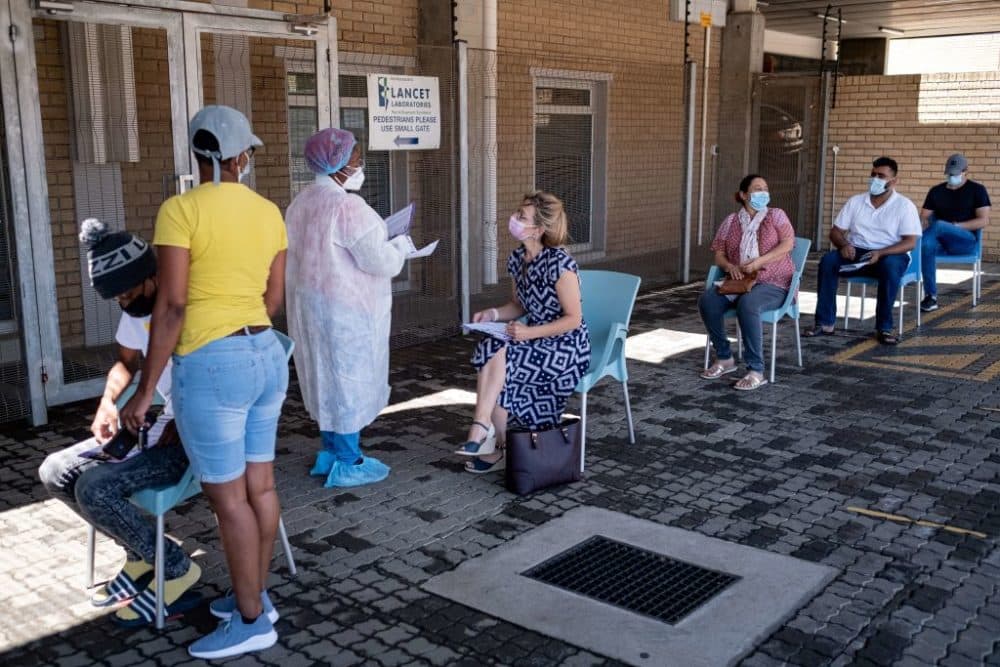Advertisement
With omicron COVID-19 variant spreading, epidemiologists say booster more important than ever
Resume
Two doctors in Israel have contracted the omicron variant of COVID-19 — both doctors had been vaccinated and boosted, according to the Sheba Medical Center.
Omicron is a variant with upwards of 50 mutations, and it has put countries around the world on alert in the week since it was first detected. It's been found on five contents and poses a "very high risk" according to the World Health Organization.
But there's a lot not known — including whether it makes people sicker, whether it will respond to the current vaccines and how widespread it really is.
We get the latest with Dr. Ashish Jha, dean of the Brown University School of Public Health.
This segment aired on November 30, 2021.